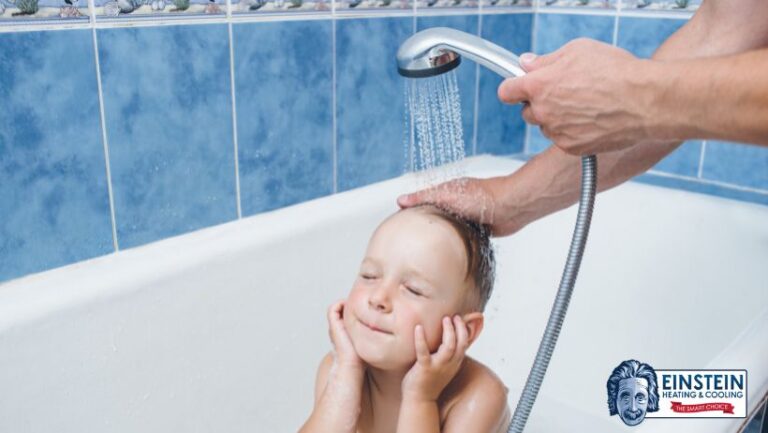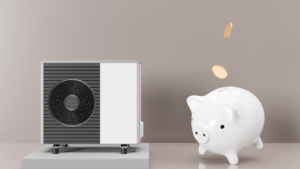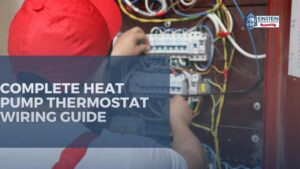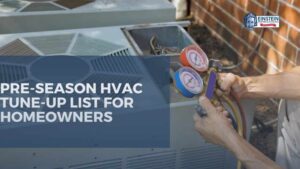When it comes to selecting the best water heater for your Prineville home, there are numerous factors to consider. Your choice of water heater can significantly impact your household’s comfort, energy efficiency, and utility bills. In this comprehensive guide, we will explore the various types of water heaters and the factors to consider when making your decision.
Factors to Consider When Choosing a Water Heater
1. Fuel Type
- Natural Gas
- Electric
- Propane
The fuel type of your water heater is a critical consideration. Each type has its advantages and disadvantages. Natural gas water heaters are known for their efficiency and fast recovery times, while electric water heaters are easy to install and have no emissions. Propane water heaters offer an environmentally friendly alternative.
2. Tank vs. Tankless
- Tank Water Heater
- Tankless Water Heater
Deciding between a traditional tank water heater and a tankless one is another important choice. Tank water heaters store and heat a large volume of water, providing a steady supply. In contrast, tankless water heaters heat water on demand, offering energy savings and endless hot water.
3. Size and Capacity
- Household Size
- Peak Demand
Selecting the appropriate size of your water heater is crucial to ensure that you have an adequate supply of hot water. Consider the number of people in your household and your peak hot water demand when determining the size.
4. Energy Efficiency
- Energy Factor (EF)
- UEF (Uniform Energy Factor)
Energy efficiency is a significant factor, both for your comfort and utility bills. Higher EF and UEF ratings indicate greater energy efficiency, leading to cost savings and reduced environmental impact.
5. Installation Location
- Indoor
- Outdoor
The installation location of your water heater can impact its performance and lifespan. Indoor and outdoor options are available, each with its pros and cons. Consider the space and ventilation requirements when choosing.
6. Cost and Budget
- Initial Cost
- Operating Costs
- Rebates and Incentives
Your budget is an essential factor when deciding on a water heater. While the initial cost is a consideration, it’s also important to evaluate long-term operating costs. Look for available rebates and incentives that can help offset the expense.
7. Water Quality
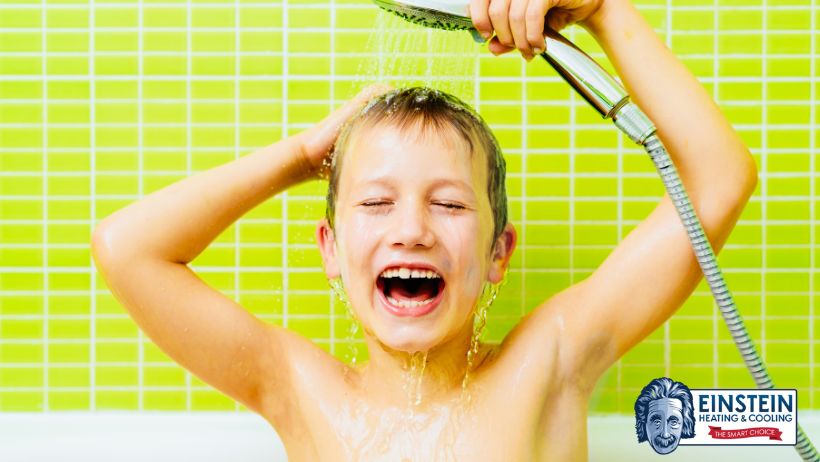
- Hard Water
- Water Softener
The quality of your water supply can influence the choice of a water heater. Hard water can cause mineral buildup, affecting the heater’s efficiency and longevity. Consider installing a water softener if you have hard water.
8. Maintenance
- Maintenance Requirements
- Warranty
Regular maintenance is essential to ensure your water heater’s longevity and performance. Different types of water heaters have varying maintenance requirements, so factor this into your decision. Also, check the warranty for coverage.
9. Environmental Impact
- Emissions
- Sustainability
Considering the environmental impact of your water heater is increasingly important. Evaluate emissions, energy efficiency, and sustainability features to minimize your carbon footprint.
10. HVAC System Integration
- Compatibility
- Zoning
Integrating your water heater with your HVAC system can lead to enhanced energy efficiency and comfort. Ensure compatibility and consider zoning options to maximize the benefits.
11. Local Codes and Regulations
- Permits
- Codes
- Inspections
Compliance with local codes and regulations is a must when installing a water heater. Check for required permits and codes, and be prepared for inspections to avoid legal issues.
12. Lifespan
- Expected Lifespan
- Maintenance Impact
The lifespan of your chosen water heater is a significant factor in your long-term investment. Different types of water heaters have varying lifespans, and regular maintenance can impact their durability.
13. Noise
- Operational Noise
- Noise Insulation
Consider the noise level of your water heater, especially if it’s installed near living spaces. Some models are quieter than others, and noise insulation can help reduce operational disturbances.
14. Brand and Manufacturer
- Reputation
- Customer Reviews
Select a reputable brand and manufacturer for your water heater to ensure quality, reliability, and customer support. Research customer reviews and ask for recommendations to make an informed choice.
15. Installation and Maintenance Services
- Professional Installation
- Service Contracts
Hiring a professional for installation and considering service contracts can help maintain your water heater’s performance and extend its lifespan.
7 Types of Water Heaters
Water heaters play a crucial role in providing hot water for various household purposes. When choosing a water heater for your home, it’s essential to consider the different types available. Each type has its unique features, advantages, and applications. In this guide, we will explore seven common types of water heaters, including their pros and cons, to help you make an informed decision for your home.
1. Tank Water Heaters
Tank water heaters, also known as storage water heaters, are the most common type found in many homes. They store a large volume of hot water in an insulated tank and keep it ready for use. Here are some key factors to consider:
Pros:
- Suitable for households with consistent hot water needs.
- Typically more affordable upfront.
- Available in various sizes to accommodate different household needs.
- Simple and reliable technology.
Cons:
- Limited hot water supply; can run out of hot water during peak usage.
- Continuously heat the water, leading to standby heat loss and higher energy bills.
- Occupies more space due to the storage tank.
2. Tankless Water Heaters
Tankless water heaters, also known as on-demand water heaters, provide hot water as needed, without the use of a storage tank. They heat the water when you turn on the faucet or appliance.
Pros:
- Energy-efficient, as they only heat water when it’s required.
- Unlimited hot water supply; no risk of running out.
- Compact and space-saving design.
- Longer lifespan compared to tank water heaters.
Cons:
- Higher initial cost than tank water heaters.
- May not be suitable for homes with simultaneous, high hot water demand.
- Installation may require specific gas or electrical upgrades.
3. Heat Pump Water Heaters
Heat pump water heaters work by extracting heat from the air or ground and transferring it to the water. They are highly energy-efficient and can be an excellent choice for many households.
Pros:
- Energy-efficient and cost-effective to operate.
- Reduce electricity consumption and greenhouse gas emissions.
- Suitable for moderate to warm climates.
- Can also cool the surrounding air in some models, functioning as dehumidifiers.
Cons:
- Less efficient in very cold climates.
- Initial cost is higher than traditional tank water heaters.
- Require installation in a well-ventilated space.
- May produce noise and cool the surrounding air.
4. Solar Water Heaters
Solar water heaters harness the power of the sun to heat water. They consist of solar panels (collectors) and a storage tank.
Pros:
- Environmentally friendly and sustainable energy source.
- Reduced energy bills and potential for government incentives or tax credits.
- Suitable for regions with abundant sunlight.
Cons:
- High initial cost for equipment and installation.
- Dependent on sunlight, making them less efficient in overcast or rainy weather.
- May require a backup heating source for cloudy days.
5. Propane Water Heaters
Propane water heaters are an option for homes that use propane gas for various appliances. They can be tank or tankless models and offer efficient heating.
Pros:
- Energy-efficient and cost-effective when using propane.
- Suitable for homes without access to natural gas.
- Tankless propane water heaters are space-saving.
Cons:
- The need for propane fuel supply and storage.
- Propane can be more expensive than natural gas.
- Limited availability and may require professional installation.
6. Natural Gas Water Heaters
Natural gas water heaters are a common choice in homes with access to a natural gas supply. They can be tank or tankless models.
Pros:
- Efficient and cost-effective when using natural gas.
- Fast recovery times, providing ample hot water.
- Lower greenhouse gas emissions compared to electric heaters.
Cons:
- Limited to areas with access to natural gas.
- Installation may require a gas line and ventilation.
- Pilot light may waste some energy.
7. Electric Water Heaters
Electric water heaters use electricity to heat water, making them a suitable option for homes without access to gas. They can be tank or tankless models.
Pros:
- Easy to install and versatile, suitable for most homes.
- Lower upfront cost compared to some other types.
- No need for a gas supply or venting.
Cons:
- Higher operational costs due to electricity usage.
- Slower recovery times than natural gas heaters.
- Limited efficiency compared to heat pump or gas alternatives.
In addition to the factors mentioned above, it’s crucial to consider your household’s specific hot water needs, the climate in your area, and your budget when selecting a water heater. Integrating your water heater with your HVAC system can also contribute to overall energy efficiency and comfort in your home. Choose the type that best suits your requirements to ensure a reliable and efficient supply of hot water for your family.
Why Choose Einstein Heating and Cooling for Your Water Heater Needs
When it comes to your water heater installation needs in Prineville, choosing Einstein Heating and Cooling is a wise decision. Our experienced team understands the importance of selecting the right water heater type for your home’s unique requirements, considering factors like energy efficiency, local climate, and your budget. Whether you opt for a tank water heater, tankless system, heat pump, or any other type, we provide expert guidance to ensure the best fit for your home. With our professional services, you can trust that your water heater installation will be carried out efficiently and seamlessly, guaranteeing a reliable supply of hot water and enhanced HVAC system integration for your Prineville residence.

